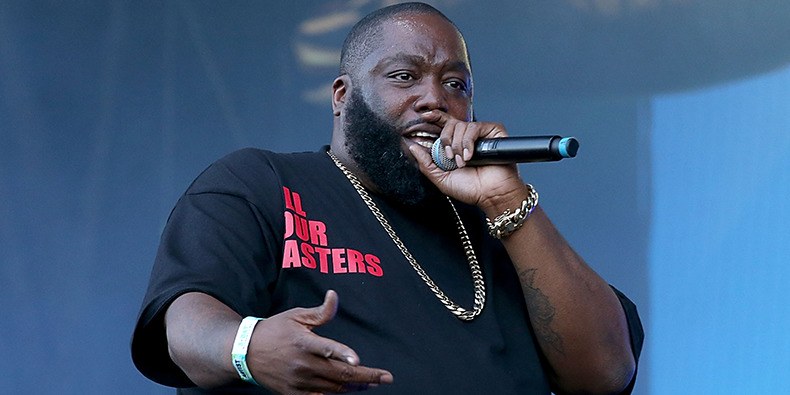Giving in to warmongering, closing your heart to those truly in need, and succumbing to panic means that not only are you exacerbating the problem, but you’re playing right into their hands…

by: Michael Shields
I am hearing the question often, an echo from the dark days following the attacks on 9/11: What can I do? A yearning to combat, in some way, the horrifying violence that occurred in Paris is only natural. It is impossible to not be affected deeply by the slaughtering of so many innocent people, and to want to take action in the name of all those senselessly murdered, ensuring that this will never happen again. What can I do? How can I help? These are noble questions, and while there are no easy answers, no simple response that will wipe away all the hurt and blood, there is one way in which we can prevent the circumstances that led to all this hurt and devastation, and that is by refusing to play right into their hands.
The stock prices of leading weapons manufacturers around the globe have skyrocketed since the attacks in Paris by ISIS. Multinational bombing missions in Syria, specifically in and around Raqqa, have intensified and continue to do so. This is to be expected. Broadening the effort to hunt down and detain those with nefarious intentions – the sort that led to the bloodshed and pain we witnessed over Egypt, in Beirut and in Paris – is urgent. But responding to terrorism by increasing the ferocity of air strikes and the frequency of drone activity is impulsive. It screams of revenge and knee-jerk politics. It displays a lack of understanding about the United States’ role in contributing to the anguish that envelops the Middle East. It denies the cause-and-effect relationship between all the bombs dropped since 9/11 and where we are today. And so it is at this junction where we must not only re-examine what our role has been in the global struggle against terrorism, but what it must be moving forward. We must find a way to rise above those that lead with violence first. We must be better. We must find a way to utilize reason to counter our collective need for action and in taking stock of the world-wide problems that have led to this. We mustn’t fall into the trap that is being set.
The goal of terrorism is a simple one, and that is to inspire fear. The reason terrorists resort to the brand of bloodshed witnessed in Paris is that they are truly capable of little else. Terrorism has always been, and remains, the method of choice for weaker factions to attack stronger ones. ISIS doesn’t have the means to establish a caliphate in Paris. But they can stir the pot. They can incite bloodlust and invoke war. Giving in to warmongering, closing your heart to those truly in need, and succumbing to panic means that not only are you exacerbating the problem, but you’re playing right into their hands. Unfortunately, too many politicians across the globe – especially here in the United States – motivated by the fear of being perceived as weak, are succumbing to the bait.
The push by Republican presidential candidates Jeb Bush and Ted Cruz to restrict or “focus” Syrian refugee resettlement on Christians only is, in a word, disgusting. And the attempt by governors in thirty-one states across the country to deny refugees access is short-sighted and callous. Refugees by definition are not terrorists. They are those most in need of help. A segment of humanity without a home who are in fact running from terrorist. But, a fact that seems to be slipping through the cracks, as politicians make empty and cold-hearted promises, is that the United States intensively vets all the refugees it allows to cross its borders. There is a system in place, one that is rigorous and thorough, to prevent those deemed to belong to “categories of concern” to enter our country. The United States doesn’t indiscriminately open its borders to all that claim to be in need. And we should not be having the conversation about closing what few doors we do have open. Over 750,000 refugees have settled in the United States since 9/11, and not one has been arrested on domestic terrorist charges. It is inclusion, not exclusion, that has always made the Unites States different. We are a country of immigrants. This is what makes us special. And we should not allow desperate acts of terrorism to change that.
What is particularly interesting to note is that among the cacophony of irrationality that is bouncing about, most – if not all – of the terrorists involved in the heinous attack last Friday were European citizens. I am not discounting the very real possibility that a strategy of “hitchhiking” into Europe and America with refugees is real, but this was not the backbone of the bloodshed in Paris. Of course this concern is valid, and should be addressed, and fortunately we have comprehensive safeguards in place to address this, but the many who are suffering should not be blamed for the sins of the few. French President Francois Hollande promised just yesterday to honor his commitment to remain a “country of freedom,” reaffirming his decision to accept migrants and refugees despite Friday’s deadly attacks. It is this brave mindset and in France’s footsteps the United States should walk. Denying refugees asylum based on their religious beliefs places us squarely on the wrong side of history. It lumps us in with those that would embrace irrational panic and impulsive narrow-mindedness rather than promote inherent human compassion. And again, it plays right into their hands.
ISIS suffers when the United States and other Western countries open up their hearts and their borders to refugees. This is in direct contrast to their plan, and to the perception they wish to convey about us as hostile, bigoted, and flat out evil. ISIS also benefits from disarray in the Middle East, from the millions of displaced individuals fleeing from violence and unrest in their own country hopelessly forced into camps. This is where ISIS feeds. Where they recruit and radicalize those who have become marginalized and disheartened and have nowhere else to turn. Without options, people become disenfranchised. They become despondent and will turn to nearly anyone that offers them a way out. This is why it is so important to offer alternatives, to offer hope. Because the other option is far more dangerous.
I understand. People want retribution, and they want it now. They want results. But hopefully France will learn from the missteps of The United States in its thirst for blood following one its darkest days. A desire for payback led us to war with a country not responsible for the attack. It resulted in the Patriot Act, sweeping generalizations about Muslims, an overzealous NSA, Guantanamo, and unlawful drone strikes that kill hordes of innocent people. And so we must walk down a different path. One that veers away from knee-jerk reactions, and instead embraces rationale long-term thinking geared towards solving an extremely complicated problem.
The world must come together, regardless of religion or creed, and address not only the proper ways to gather, share, and act on intelligence, but also how to address social issues on a global scale, issues that give rise to despondency and radicalism. We have to cut to the core of the issue, and not lean on failed, outdated methods. The War on Terror has never been a conventional battle. And this is true now more than ever. The front lines of this war do not involve guns or violence, but ideas and tolerance. We cannot give in to the temptation to become, as a society, what we claim to detest most.
And so, what can you do? The long and short of it is this: Do not succumb to fear. Believe that there is still an overwhelming supply of good in the world. And remember, ISIS will not win. Hate will not win. The inane ideology that these thugs base their murderous actions on does not represent the will of the majority of humankind. Good will prevail. Love will prevail. Peace, not more War, is the banner we must be waving, and we will prevail if we do. Unless, that is, we sink to their level. Unless we fight fire with fire, and succumb to their will. Unless they draw us into their world, and then we play right into their hands.





